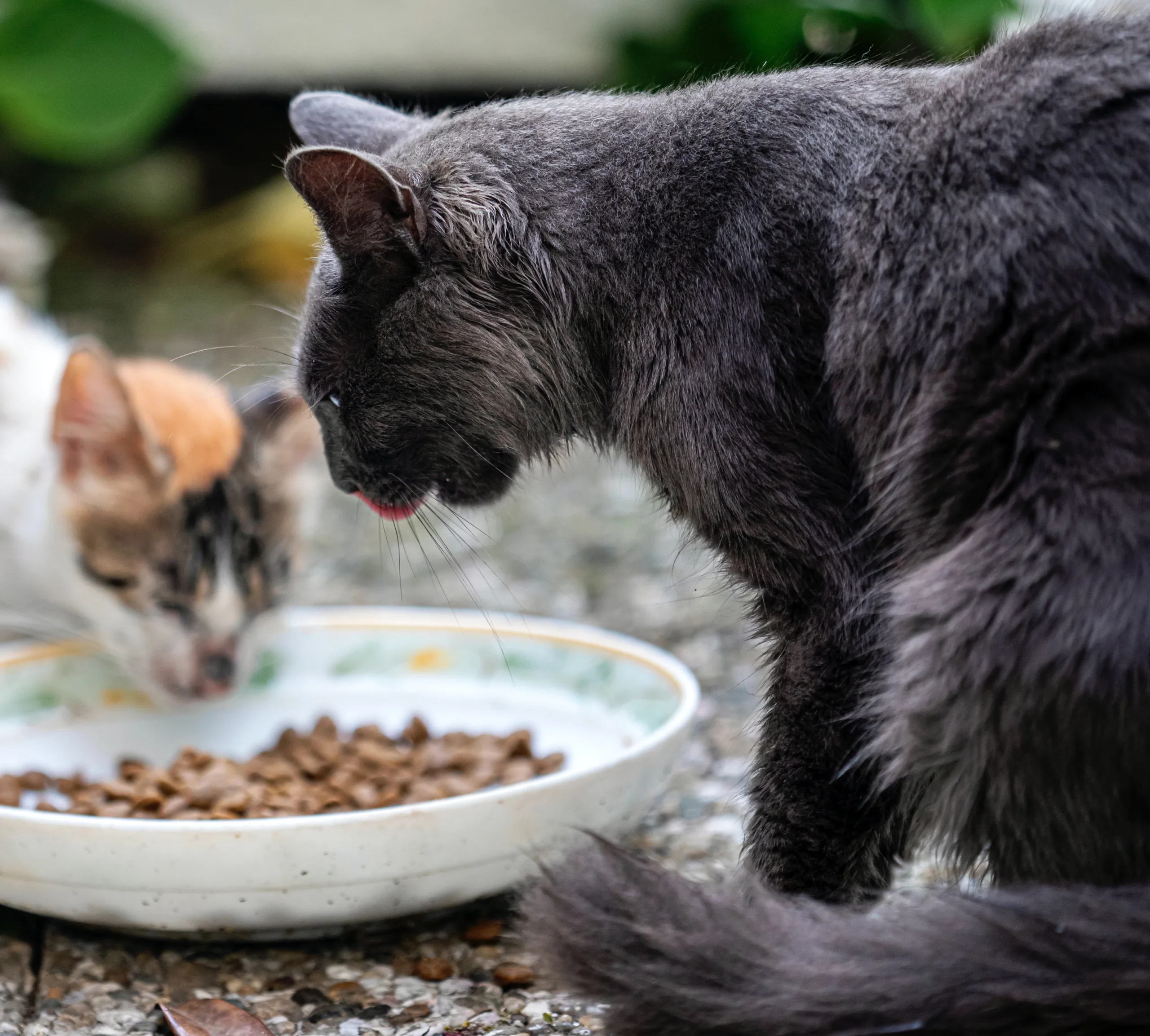Why Do Cats Shake Their Head When They Eat? Cats are known for their intriguing behaviors, and one of the peculiar habits that can leave cat owners puzzled is the act of shaking their head while eating. You might wonder why your feline friend exhibits this behavior during mealtime. In this article, we’ll explore the possible reasons behind cats shaking their head when they eat, whether it’s a cause for concern, and what insights it might provide into your cat’s behavior.
For more about cats click here
Why Does My Cat Shake Her Head When Eating Food?
Cats shaking their head while eating might have a few explanations:
- Dislodging Food: Cats have sensitive taste buds on their tongue and the roof of their mouth. Shaking their head could help dislodge any particles of food that might be stuck.
- Savoring the Flavor: Cats have a heightened sense of taste, and shaking their head could be their way of savoring the taste of their food.
- Behavioral Quirk: Cats are known for their quirky behaviors, and head shaking during eating could simply be an idiosyncratic habit.
Is It Normal for Cats to Shake Their Heads?
Yes, head shaking during eating can be a normal behavior for cats:
- Individual Variance: Cats, like people, have individual personalities and behaviors. Some cats might shake their head during meals, while others might not.
- Sensory Exploration: Cats use their senses, including taste and touch, to explore their environment. Head shaking could be part of this sensory exploration.
Why Do Kittens Shake When They Eat Meat?
Kittens might shake while eating meat due to their lack of experience with solid foods:
- Transition to Solids: Kittens are introduced to solid foods during weaning, and the process of chewing and swallowing can be new and unfamiliar, leading to head shaking.
- Developing Coordination: Young kittens are still developing their coordination, and this might contribute to head shaking as they learn to eat.
Why Does My Cat Shake Its Head When I Touch Its Ears?
Head shaking in response to ear touching could indicate discomfort or an issue with the ears:
- Ear Infection: Cats with ear infections might shake their heads to alleviate discomfort. If you notice persistent head shaking, it’s advisable to consult a veterinarian.
- Pain or Sensitivity: If your cat shows signs of discomfort when you touch their ears, it’s possible that there’s a pain or sensitivity issue.
Why Is My Cat’s Jaw Shaking When He Eats?
Jaw shaking during eating could have a few explanations:
- Excitement: Cats can get excited during meals, and a slight shaking of the jaw might be an expression of anticipation.
- Chewing Motion: Cats use a chewing motion to break down their food. Mild jaw movement is a normal part of the chewing process.
Why Do Cats Do Bunny Kicks?
Bunny kicking, where a cat uses its hind legs to kick an object, is a playful and instinctive behavior:
- Predatory Instincts: Bunny kicking mimics the kicking motion cats use to subdue prey in the wild.
- Playful Behavior: Cats often exhibit bunny kicks during play, especially with toys or objects they can kick and grasp with their hind legs.
External Resources for Understanding Cat Behavior
For further insights into cat behavior, consider exploring these resources:
- The American Society for the Prevention of Cruelty to Animals (ASPCA) – Cat Behavior
- International Cat Care – Understanding Your Cat’s Behaviour
FAQs on Why Do Cats Shake Their Head When They Eat?
Q1: Why does my cat shake her head when eating food? Head shaking could help dislodge stuck food particles or be a sensory exploration of taste and texture.
Q2: Is it normal for cats to shake their heads? Yes, head shaking during eating can be a normal and individual behavior for cats.
Q3: Why do kittens shake when they eat meat? Kittens might shake due to the new experience of solid foods and developing coordination.
Q4: Why does my cat shake its head when I touch its ears? Head shaking in response to ear touching could indicate discomfort or an ear issue.
Q5: Why is my cat’s jaw shaking when he eats? Jaw shaking during eating could be an expression of excitement or a natural part of the chewing process.
Q6: Why do cats do bunny kicks? Bunny kicks are instinctive and playful behaviors that mimic predatory kicking motions.
In Conclusion
Cats are enigmatic creatures with a rich repertoire of behaviors. Head shaking during meals might have different meanings, ranging from sensory exploration to natural instincts. While it’s generally normal for cats to shake their head while eating, it’s essential to observe your cat’s overall behavior and habits. If you notice any persistent or concerning changes in their behavior, consulting a veterinarian can provide you with insights into your cat’s well-being and ensure they lead a happy and healthy life.
